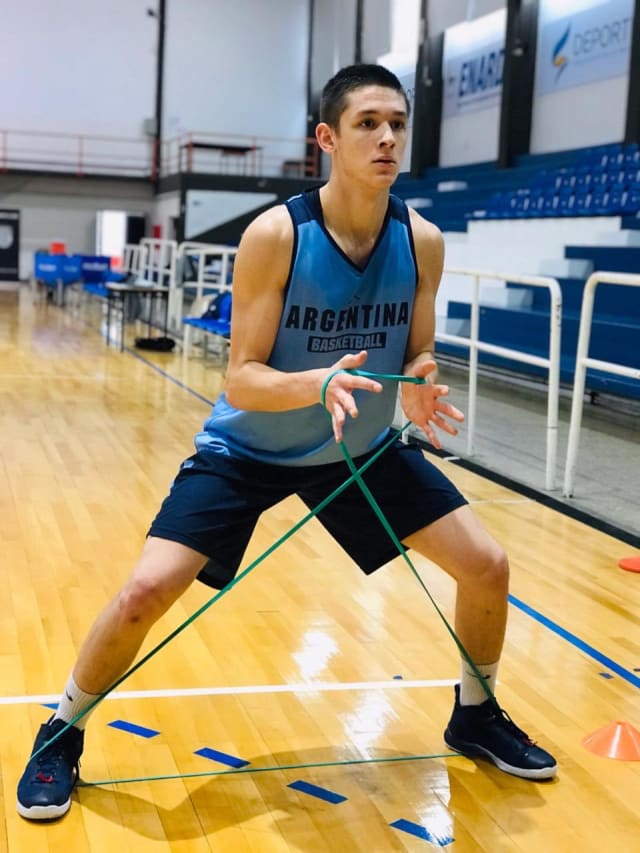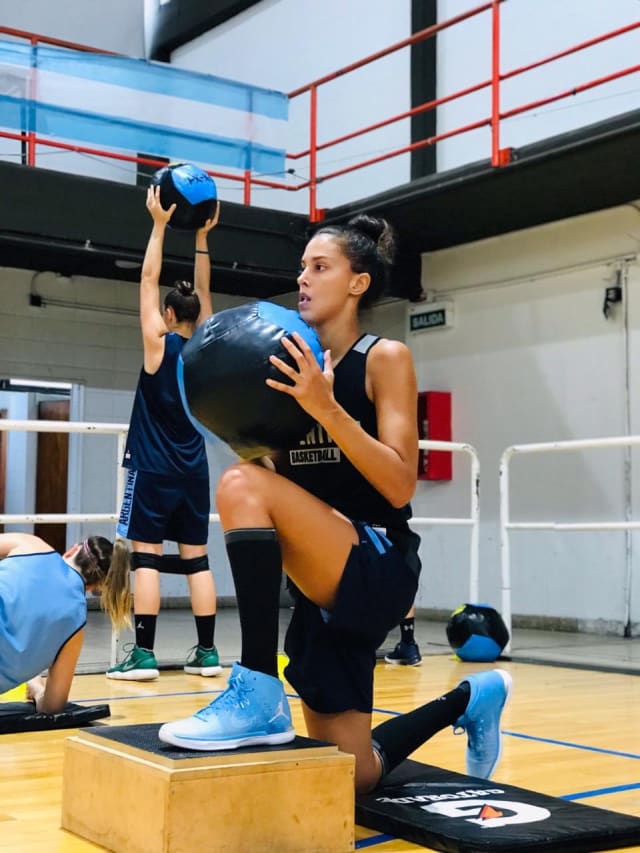Argentine basketball: from its formative to high-performance categories
Physical training is, without a doubt, one of the aspects to improve in formative categories due to the enormous impact it has on the development and the future of young players. Starting four years ago, t
BUENOS AIRES (Argentina) – Physical training is, without a doubt, one of the aspects to improve in formative categories due to the enormous impact it has on the development and the future of young players. Starting four years ago, the Argentine Basketball Confederation (CABB) has implemented a strategic plan with more than 70 steps regarding national basketball development, formation, and high-performance.
Some of these aspects are directly linked to the competition and to institutional agreements to popularize the CABB Method – a tool that seeks to draw a program to develop Argentine basketball and reach all places in this country where basketball is practiced.
In the context of the “Player Strength and Conditioning in Formative Divisions” presented on October 5, 2018, the CABB will officially hold its second Physical Training Applied to Basketball course, led by professional specialists in the area. The motto “Efficient practices, efficient players” portrays the comprehensive and multi-disciplinary focus of the event featuring a first-level international staff.

The event will be divided into dynamic 40-minute sessions with a recess in the middle of the day. There’ll be hands-on activities developed by court professionals, as well as international talks with foreign colleagues and round tables to debate specific matters.
“The event will feature several shooters that are trending around the world. We designed and created this program due to a basic need in the system. We perceived that it's a weakness in our process and we've noticed this when we compete at an international level. If we're able to improve our players’ physical aspects, we’ll collaborate with their development and we're going to be able to present national teams – from youth to senior categories – with a lower age average, but in optimal physical shape,” said to FIBA.basketball Ezequiel Lavayén, physical trainer for the formative categories’ Argentine national teams.
“The CABB learns a lot from the youth development programs organized by FIBA. That's the example we want to follow. The important thing is to focus on popularizing the sport, that kids have a ball, have fun and develop,” he added.
The second edition of the Course will deal with different aspects that are integral to the sport of basketball. A segment was dedicated to the development of Mini Basketball and another to the formative aspects, while always keeping in mind integrating both sexes and featuring coaches that work with both in the same way. It also featured international basketball presence with physical trainers Luka Svilar, of Spain’s Baskonia; and Germán Andrín García, of Russia’s Zenit.
“Training is something permanent and daily. This course keeps the fire alive of a strategic plan that has been implemented for four years, and whose most important point is training while having a profile of formative players and warm-up protocols, or the development of assessment and performance techniques,” said Lavayén to FIBA.basketball.

The course, that will take place on November 23 in Club Temperley in Buenos Aires, will be live-streamed and will feature Manuel Álvarez and Marcelo López. They were part of the staff of the Argentine national team in the most recent edition of the FIBA Basketball World Cup in China and will share their experiences with the team that won the silver in the championship.
“We try to copy the best things that happen around the world and that's why we adapt these possibilities of developing specific programs. First, with the CABB Method, then with physical training, and now with Mini Basketball. We decided to make our own diagnosis and based on that, work with all federations in the country,” said Lavayén, who has a degree in Physical Education and is a High-Performance specialist.
The course’s subjects include the development pyramid, the formation of high-performance basketball players for national teams (showing how to control the weight of training and how to prepare an elite player, how to train them, for how many days), and how the profile of the Argentine player can be improved.
“This is a continuation of the CABB method, which proposes a work method for clubs with the goal of reaching them and share a proposal of how things should be made to prepare physically. The idea is to have a functional profile of each player,” said Matías Suhurt, who’s an Athletic High-Performance specialist and the Physical Trainer of youth national teams.
“This year we're training with the U-16 category to train it for the FIBA Americas Championship. We already know how many training sessions and how intense they were and, in five years we’ll be able to tell what's the profile of the team that will face a tournament,” he added.
The goal of all training activities is to constantly improve, learn and be up to date, which is why the strategic alliance between the CABB and ENEBA (the National Argentine Basketball Coaching School) is so important. It helps the method to grow by bolstering and sharing the idea of a coaching training school that allows students to share the contents they learned.
The Youth Development Program Elite Camp, created and developed by FIBA, was another one of the great moments in 2019 for the CABB when in April the National High-Performance Sports Center (CeNARD) was established to teach new lessons and add them to the Confederation’s.
Lavayén, who attended, assured: “I think what FIBA is doing with the YDP throughout the continent is outstanding. They allowed us to meet not only in South American or Pan American competitions but also to share the work methods of each country. FIBA also acknowledges the development in the regions, and all this helps us make an assessment to improve, in the short-term, the activities in the entire continent and to improve in the region so that we all do better.”
FIBA